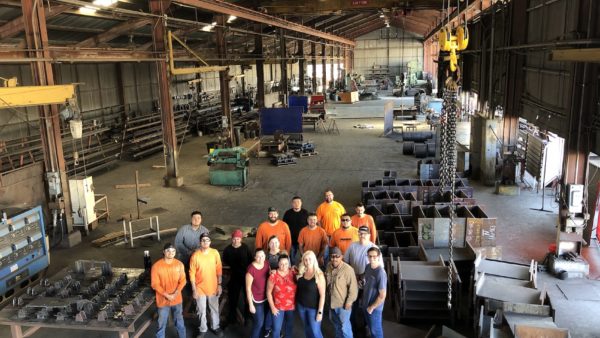The UK contracting industry cannot improve without rigorous and sustained government intervention, and Carillion’s collapse proves that.
Ten days after Carillion’s collapse on 15 January, the contractor and consultant Mace published an analysis suggesting that if the productivity of construction had improved in line with that of manufacturing over the past two decades, British society would be enjoying enormous benefits now.
Those benefits included £100bn worth of extra overall economic output, £40bn more in tax revenues, and more of the infrastructure we need, delivered faster and more cheaply.
Mace’s report correctly identifies Carillion’s collapse as an example of what happens in conditions of chronically poor productivity.
Indeed, Carillion exemplifies whatever is the polar opposite of productivity: its failure caused hundreds of millions of pounds to be lost, crucial projects to be delayed, supply-chain firms to face difficulty and even to go under, careers to be disrupted, and people’s financial security to be jeopardised.
Had Carillion been “more productive”, meaning ahead of the pack in skills, innovative practices and management rigour, it might have avoided the project-based calamities that brought it down.
Carillion was not uniquely unproductive, however. Its process deficiencies were typical of the industry, which is characterised by profit warnings, low profitability, disputes and delays. Carillion’s wasn’t the only downfall in recent history but it was the most spectacular, and it should be seen as a canary-in-the-coal-mine event.
The company’s own management was frank in describing those deficiencies. In their last-ever business plan produced just days before its collapse (presumably to convince creditors to help just one more time), management listed the “root causes” of poor contract performance, and it opens a window onto all that’s wrong with the contracting business.
Items include: “Contracts taken on with high degree of uncertainty around key assumptions”; “Ineffective change control – e.g. design changes on construction contracts agreed without agreeing incremental costs”; “Success on construction contracts dependent on performance of others not under our control”; “Insufficient understanding of, and adherence to, contract requirements”; and “Lack of effective handover from bid to mobilisation to delivery, leading to lack of knowledge transfer”.
All but the newest entrants to the industry will recall that we’ve been talking about this since before Sir Michael Latham’s 1994 report, Constructing the Team. Why does nothing ever change?
Government’s role
The action plan Mace proposes correctly places responsibility for increasing construction productivity on the shoulders of the UK government.
Mace urges government to invest in developing higher-tech approaches to construction, to reform education and training to make it more conducive to those techniques, and, crucially, to explicitly require the behaviour it wants from industry, including the use of digital technology and modern methods of construction.
Government has taken cautious steps in this direction, including mandating the use of building information modelling (BIM) on central government projects, but there is evidence of a lack of will and consistency in pushing for change.
Why should the state fix an aspect of the private sector? It’s a good question, and there are four reasons why it can and must.
First, the government is the single biggest consumer of construction services in the UK, and so wields unparalleled influence over how those services are supplied. Added to that, government is the most experienced client of construction, and has institutional awareness of which levers to pull.
Second, government can, and regularly does, use policy to change the environment in which markets operate; such changes would include the internal rules of the game, including contracts, payment, and the use of productivity-boosting technology such as BIM, but also external conditions, such as education policy to assist in the cultivation of the right skills.
Third, government has the most to gain from better productivity in construction, including, if Mace’s figures are at all accurate, economic growth, tax revenues, and the affordable provision of the infrastructure we need.
The fourth reason is more fundamental. It is that if government does not drive productivity in construction, construction will never become more productive.
It shouldn’t be this way. In theory, the market should reward the most innovative and productive contractors because they consistently do the best job. But the peculiarities of the contracting business model short-circuits this rule of progressive market selection. It is a business model characterised by the twin tensions of cost-competitive tendering and what resulted from that, the industry’s profound functional fragmentation, in which cost and risk are forever passed down along the supply chain to those with the least resources to manage them.
This has locked construction into an unvirtuous circle.
A noble contractor could invest in skills, technology and process innovation, but the contractor who did so would need to price those costs accurately into the contracts it bids for, and in the universal scramble for turnover there will always be others willing to undercut them, creating a formidable disincentive to improve.
Government colludes in this unvirtuous circle by wanting, like any other client, the cheapest price, and by not recognising the upfront costs of true process innovation. Inexperienced clients can be forgiven for perpetuating the unvirtuous circle but government, which has been stoking the sterile debate over industry improvement for the last quarter century, cannot.
Government will not be able to transform the entire industry, and nor is it responsible for doing that. But among the pool of service providers it uses, and their supply chains, it must mandate innovative best practice and be prepared to pay for its cost.
It would be an investment in a future where the savings that higher productivity brings start to be realised. When the biggest and best of the industry and their supply chains are operating in a competitive market that rewards innovation, the unvirtuous circle will reverse gear and become virtuous, catalysing positive change in the broader industry.
If government continues to duck its responsibility, we will grind along as we’ve always done, scraping by with low-level performance, rattled – but never quite enough – by big, traumatic failures like Carillion’s.
- A full, referenced essay on the implications of Carillion’s failure and the state of UK industry improvement is published by Construction Research & Innovation, and is available to GCR readers here.
Comments
Comments are closed.











Good analysis Rod and it seems that Mace have been doing their usual great work on industry comment.
The trouble is construction clients dont “value” construction and are only prepared to pay the equivalent of 1% margin for it. So that is all the industry is going to get, maybe 2% on a good day. And its not enough to run a solid, sustainable business with good practices integrated throughout.
When I say clients don’t value construction this is what I mean – they have the drawings and can see a 3D fly through of what they are going to get and it looks great, so they simply want it and they want it now. The whole process of procuring it and constructing it is an inconvenience a nuisance getting in the way of what they want and what they want right now.
So we have been talking about this kind of stuff since 1994, Latham. Wrong. Double it. Twice as long. And we are still talking now and not much has changed in terms of industry margins and the tenuous nature of contracting and so it goes on: risk is kept moving around in the hope that it doesn’t materialise. But is does and frequently.
Does the industry have to accept its lot and gracefully accept its 1%?
No, is my answer. There are things that enlightened organisations are doing right now, in the construction industry, and they are delivering remarkable results. Case Studies at http://www.dsabuilding.co.uk
Yes government can provide a framework – they are only one part of the framework – this is a systemic issue and requires multiple layers of aligned attention that allows learning and culture change to facilitate excellence.
Probably a need for some good conversations and dialogue
I like the attention to the payment framework – the full cost needs to be considered not the cheapest – even there – a systemic change in procurement practices and holistic KPIs is required.
Good article
Possibly, but in this case Carillion thought they were untouchable, they caused their own collapse.
In order for construction productivity to improve to match manufacturing requires Contractors to have similar profit margins, but are Client’s willing to accept the additional cost?
Until construction moves away from high risk, low profit, which is a result of an aggressive and competitive industry, then it is difficult to see how the benefits identified in the article can be achieved.
The cost of “training.” Is 99 time out of 100 borne by the tradesperson.
ECS/CSCS, PASMA, iPAF, Sentinel/ICI ad nauseum. Companies may factor these costs into the contract price, but that money never leaves the biscuit tin in HR.
The training is of a low quality and utterly irrelevant to the poor standards of health and safety on British construction sites. You can train all the staff/workers you like….until the culture changes accidents and fatalities will always be the norm.
Health and safety at present is PR show. A fabrication. I consider it to be a hypocritical conspiracy.
As for the margins being too thin, and clients being difficult to manage. Who created these conditions? The same companies who greedily ate their own industry alive instead of investing in it.